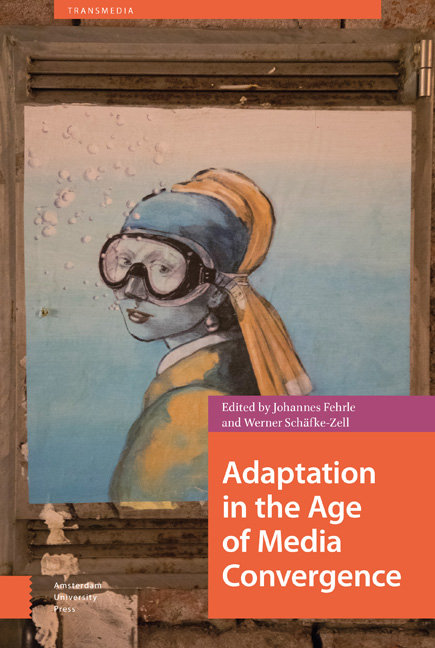Book contents
- Frontmatter
- Contents
- 1 Introduction: Adaptation in a Convergence Environment
- 2 Adaptation as Connection: A Network Theoretical Approach to Convergence, Participation, and Co-Production
- 3 Filing off the Serial Numbers: Fanfiction and its Adaptation to the Book Market
- 4 From Paratext to Polyprocess: The “Quirky” Mashup Novel
- 5 “You Just Got Covered”: YouTube Cover Song Videos as Examples of Para-Adaptation
- 6 Masters of the Universe? Viewers, the Media, and Sherlock's Lead Writers
- 7 Alien Adapted (Again and Again): Fictional Universes between Difference and Repetition
- 8 “Everything is Awesome:” Spreadability and The LEGO Movie
- 9 Localization as Adaptation in the Wolfenstein Franchise
- Index
8 - “Everything is Awesome:” Spreadability and The LEGO Movie
Published online by Cambridge University Press: 21 November 2020
- Frontmatter
- Contents
- 1 Introduction: Adaptation in a Convergence Environment
- 2 Adaptation as Connection: A Network Theoretical Approach to Convergence, Participation, and Co-Production
- 3 Filing off the Serial Numbers: Fanfiction and its Adaptation to the Book Market
- 4 From Paratext to Polyprocess: The “Quirky” Mashup Novel
- 5 “You Just Got Covered”: YouTube Cover Song Videos as Examples of Para-Adaptation
- 6 Masters of the Universe? Viewers, the Media, and Sherlock's Lead Writers
- 7 Alien Adapted (Again and Again): Fictional Universes between Difference and Repetition
- 8 “Everything is Awesome:” Spreadability and The LEGO Movie
- 9 Localization as Adaptation in the Wolfenstein Franchise
- Index
Summary
Abstract
This essay addresses The LEGO Movie as a transmedia text that references or includes a remarkable collection of characters and “bits” from other films and TV series. As I argue, the movie is assembled with a kind of cynical humour reminiscent of the exhausted irony described by David Foster Wallace, and effectively short-circuits possible critiques of the LEGO company itself, while presenting a Trumpian dictator who is plotting the end of the minifigures’ world. The essay also discusses the economy of transmedia storytelling and its characteristic diversification which mirrors LEGO's own corporate strategy, thus making the LEGO business model cute and entertaining.
Key words: LEGO; money; finance; irony; transmedia storytelling
A Nobel prize, a piece of string
You know what's awesome? Everything
[…]
Rocks, clocks, and socks, they’re awesome
Figs, and wigs, and twigs, that's awesome
Everything you see or think or say is awesome
Introduction
The high-spirited affirmation that “everything is awesome” – the hook from the LEGO Movie 's (2014) academy-award-winning theme song – is a message that itself could mean just about “everything” and anything. From “rocks, clocks and socks” to “wigs and twigs,” the lyrics express not only one minifigure's positive attitude toward work, but also the seemingly random, recombinatory mechanism behind the plot, its construction which relies on intermediality and media convergence, and the narrative's very self-conscious intertextuality. At the same time, the movie offers what I will argue is a complex, self-reflexive view of many of the current global predicaments with which we are confronted on a daily basis. The larger implication is that, while it is goes without saying that The LEGO Movie concept derives from various media, including the interlocking bricks, and borrows characters from any number of other narrative franchises, it also foregrounds the kinds of monetary and economic systems through which the film was produced and disseminated.
Importantly, while the film does all of the aforementioned, it also holds up a comedic view of labor and creativity to contemporary Western neoliberalized audiences that remains, as I want to suggest, profitably and productively ambiguous in the film.
- Type
- Chapter
- Information
- Adaptation in the Age of Media Convergence , pp. 175 - 202Publisher: Amsterdam University PressPrint publication year: 2019



